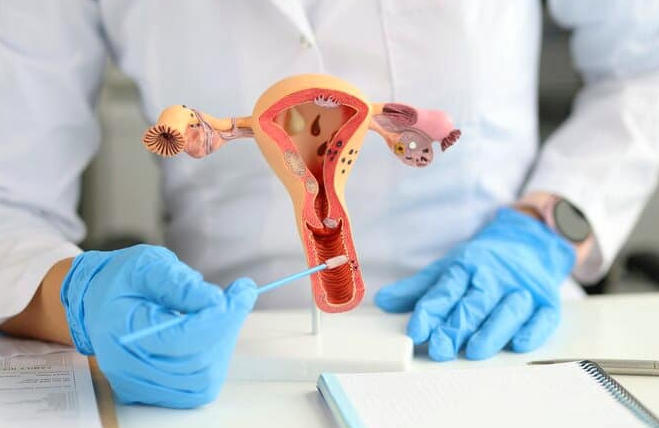Various problems, including infertility, can be caused by hormonal disorders. Polycystic ovary syndrome is one of the causes of these hormonal disorders
What are the symptoms of polycystic ovary syndrome? The number of resting follicles increases in an individual’s body, but ovulation does not occur, usually one of these follicles; Ovulation releases an egg from the ovary, which is a normal process and does not cause polycystic ovary.
In most cases, women find that they have between 10 and 15 resting follicles when they do an ultrasound test. It has been found that women with polycystic ovary syndrome have between 10 and 20 resting follicles, and sometimes even between 20 and 40, but some people believe that this is the case, so they are afraid.

There is no easy way to recognize it
It is possible to have only two of the three symptoms of polycystic ovary syndrome, which is a very common occurrence. A common cause of irregular menstruation is irregular ovulation and excessive androgen production. Because he may have shared his problems with different doctors, a combination of symptoms may be unknown to him, making diagnosis difficult.
There is no known cause of this syndrome
Insulin resistance can also contribute to these conditions, as well as irregular menstrual cycles and high levels of androgens. This syndrome affects more than 80% of obese women who are also insulin resistant, which is not unrelated to their obesity. Although the relationship between insulin resistance and androgens is still unclear, insulin resistance may increase androgen levels.
Even if you are thin, you may have this syndrome
Although polycystic ovary syndrome is more common in overweight and obese women, thin women can also suffer from it. In the history of people with this disease, genetics plays an important role.
Symptoms of PMS can be reduced by birth control pills
It is also difficult to diagnose polycystic ovary syndrome because some women use birth control pills that hide the symptoms and think that the irregular periods are caused by these pills.
Heart disease is associated with this syndrome
High blood pressure and high cholesterol are two of the most common health problems associated with polycystic ovary syndrome. Metabolic syndrome is twice as likely to occur in women with this condition in Europe.
Diabetes is a risk factor for this condition
Diabetes and heart disease are also associated with metabolic syndrome. Many people with polycystic ovary syndrome develop diabetes, and this is a common occurrence.
Sleep apnea affects many of them
Sleep apnea, which can cause breathing problems at night, is another condition associated with polycystic ovary syndrome.
Anxiety and depression are increased by exposure
More than 60% of women with polycystic ovary syndrome suffer from mental conditions such as anxiety, stress, depression, and eating disorders. Although the cause of this problem is not yet clear, hormonal problems may have contributed to it.
Cancer and polycystic syndrome
Since people with polycystic ovary syndrome do not have a regular menstrual cycle, being overweight may increase the risk of uterine cancer.
Changes in lifestyle can be beneficial
The severity of the symptoms can be reduced by considering strategies. It is possible to regulate the menstrual cycle by losing weight and bringing the hormones under control. To maintain a healthy lifestyle, take your medicines on time, keep your weight in proportion, don’t smoke, exercise, eat well, and sleep enough.
The fact that you can’t get pregnant doesn’t mean you can’t get pregnant
Although polycystic ovary syndrome is often thought to result in infertility or prevent women from getting pregnant, it is interesting to know that you can get pregnant by controlling this condition, although the diagnosis of all these conditions is the doctor’s responsibility.


